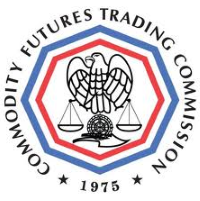Posted Jan 31, 2018 by Martin Armstrong
The Commodity Futures Trading Commission announced that it has brought a case in conjunction with the Department of Justice and Federal Bureau of Investigation’s Criminal Investigative Division, charging criminal and civil enforcement actions against three banks and six individuals involved in commodities fraud and spoofing schemes, which they define as bidding or offering with the intent to cancel before execution. The problem with now claiming to spoof is a crime, they are dangerously destroying how markets have traded from the beginning and this is only reducing the liquidity. That means in the years ahead, during a crisis, there will be fewer and fewer big players left in the markets and that will become dangerous. The government tries to spoof itself during a panic and always comes out and says the market is fundamentally sound to try to stop a panic. They simply write a rule and it becomes a crime that is contrary to a Democratic form of government. Any crime should ONLYbe authored by Congress – not agencies.
We use to call that “flash” bids or offers. It was simply a way of trading that was often mandatory. Of course, there was the risk that you could be tagged. I was short one time in gold about 5,000 lots and it was a turning point so I wanted to cover and flip to a long position. There was a large local trader in the pit. His style was to do these flash offers or bids to try to push the market to the next level. I instructed my guy on the floor to just wait for him and as soon as he would flash offer a thousand lots, buy them. He flashed 1,000 and I said done. He then flashed 1,000 again and I said done. He tried a third time 1,000 and I said done. Gold then rallied. It is one thing to bid or offer and you are not willing to take that position. I seriously doubt that anyone in their right mind would do that. If you are going to flash bids or offers, you can also be tagged and you have to be good for the trade.
The CFTC is totally destroying the market and liquidity. They filed charges and settled charges against Deutsche Bank AG (DB AG) and Deutsche Bank Securities Inc. (DBSI) (collectively, DB), requiring DB to pay a $30 million civil monetary penalty and to undertake remedial relief. The traders were between February 2008 and continuing through at least September 2014, in precious metals. They call this a scheme to manipulate the price of precious metals futures contracts by utilizing a variety of manual spoofing techniques with respect to precious metals futures contracts traded on COMEX, and by trading in a manner to trigger customer stop-loss orders. This is how the markets have traded since inception.
The CFTC also charged and settled against UBS AG(UBS), requiring UBS to pay a $15 million civil monetary penalty and to undertake remedial relief. Again, this was concerning precious metals futures contracts traded on COMEX.
The third charge was an Order filing and settling charges against HSBC Securities (USA) Inc. (HSBC) for engaging in numerous acts of spoofing with respect to certain futures products in gold and other precious metals traded on COMEX. HSBC was ordered to pay a civil monetary penalty of $1.6 million.
The CFTC Division of Enforcement Director James McDonald said:
“Spoofing is a particularly pernicious example of bad actors seeking to manipulate the market through the abuse of technology. The technological developments that enabled electronic and algorithmic trading have created new opportunities in our markets. At the CFTC, we are committed to facilitating these market-enhancing developments. But at the same time, we recognize that these new developments also present new opportunities for bad actors. We are equally committed to identifying and punishing these bad actors. The CFTC’s enforcement program is built around the twin goals of holding wrongdoers accountable and deterring future misconduct. We believe these goals are best achieved when we hold accountable not just companies, but also the individuals involved. As these cases show, we will work hard to identify and prosecute the individual traders who engage in spoofing, but we will also seek to find and hold accountable those who teach others how to spoof, who build the tools designed to spoof, or who otherwise aid and abet the wrongdoing. These cases should send a strong signal that we at the CFTC are committed to identifying individuals responsible for unlawful activity and holding them accountable.”

No comments:
Post a Comment